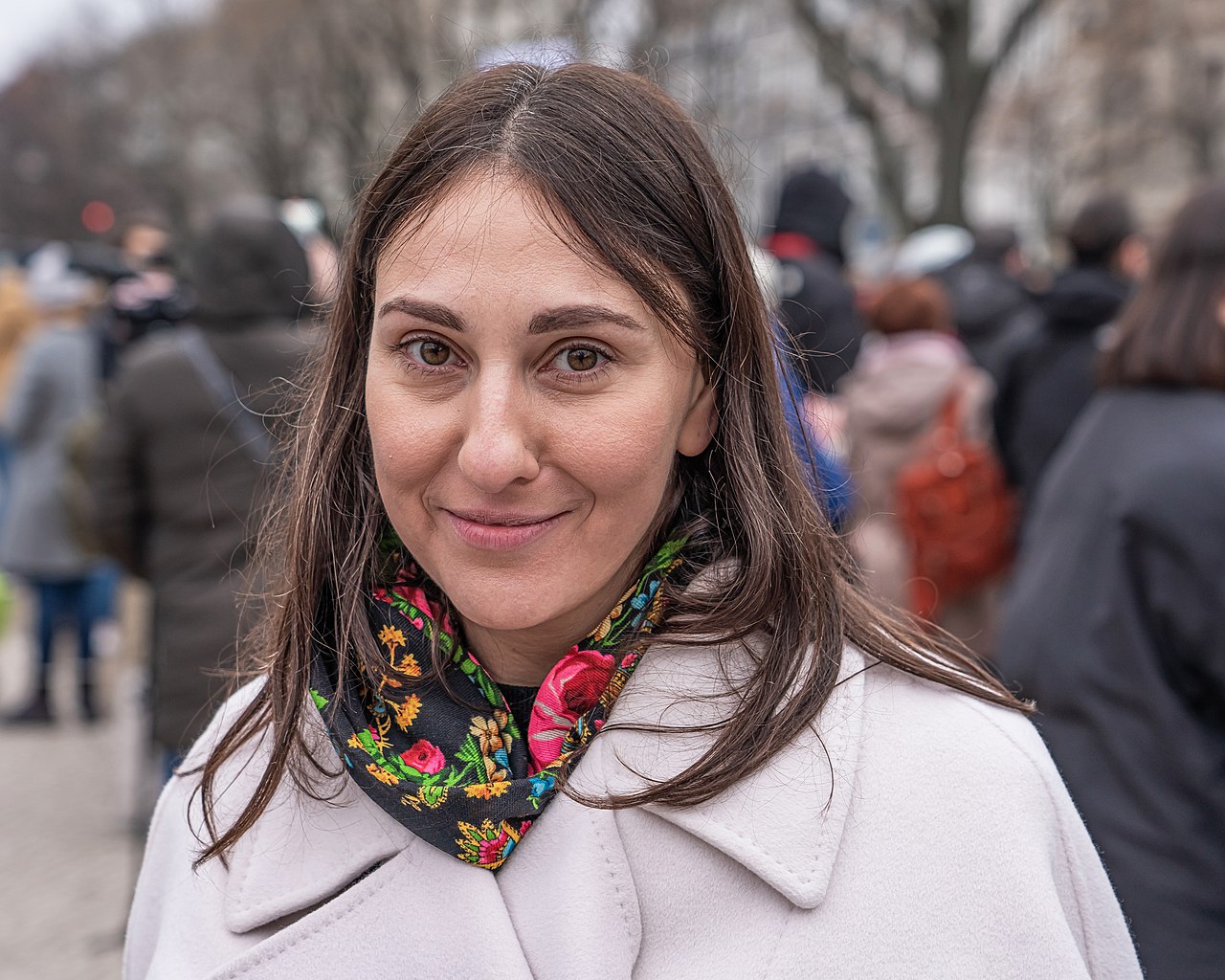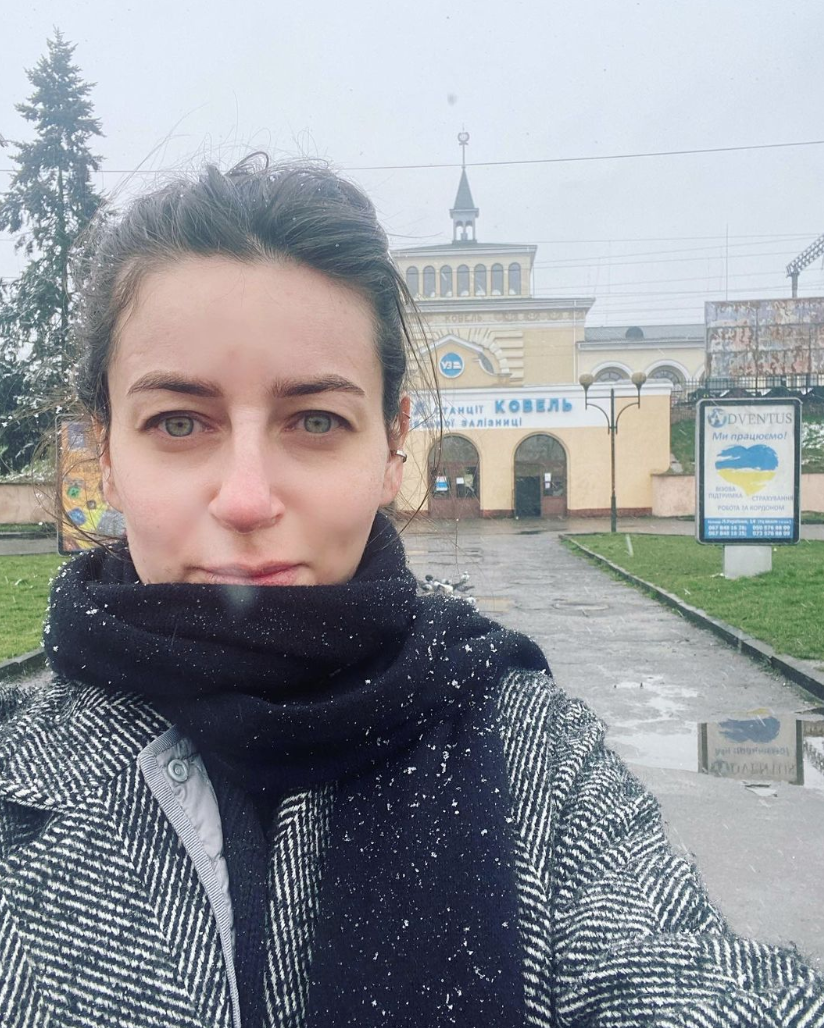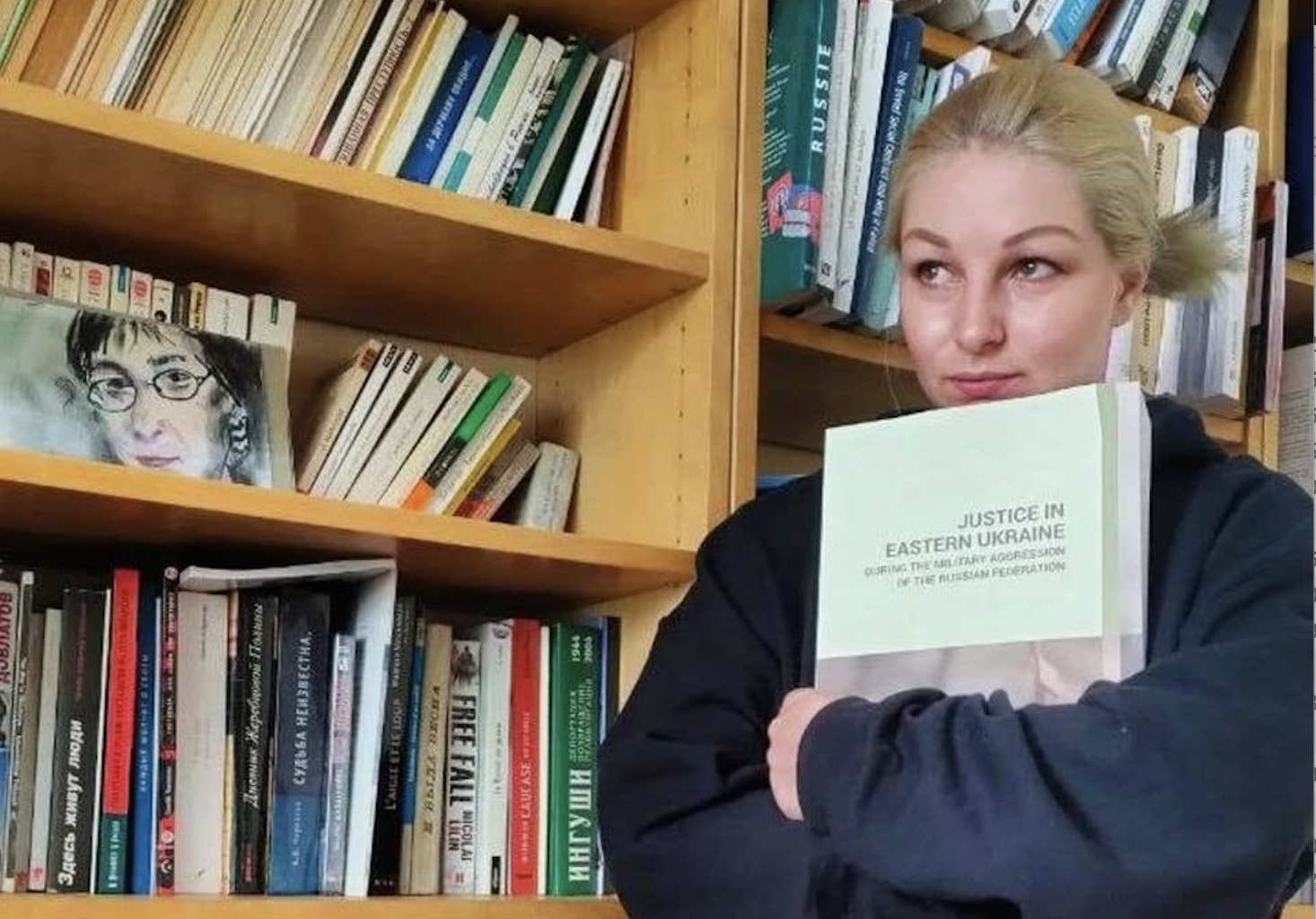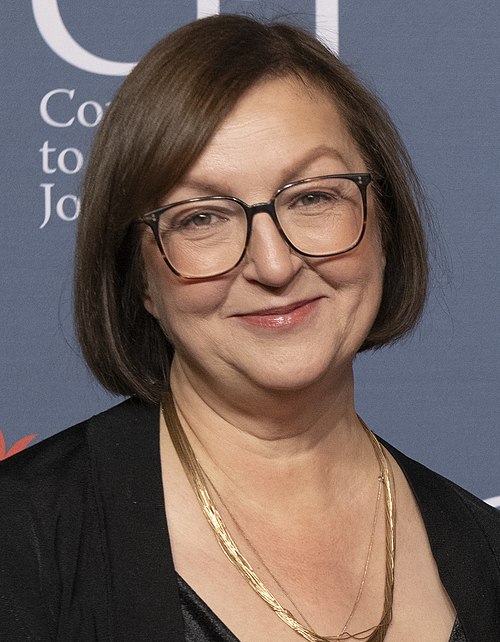Graphics: Lenka Matoušková 2023-10-09
Graphics: Lenka Matoušková 2023-10-09
Always be vigilant about your toothbrush. Keep an eye on your cup. Remember precisely where you place personal items in your hotel room. Make sure that curtains are drawn at home. Use a VPN. Russian and Belarusian journalists in European exile follow many security rules. However, a significant number have encountered threats, cyberattacks, and even instances of poisoning attempts in the past year. While several cases of threats and possible attempted poisoning have also occurred in the Czech Republic, local authorities would not comment on the security situation.
This article was originally published in Czech on Investigace.cz
“It will increase your chances”
„I was naive. I had the feeling that Europe was safe, and therefore, I ignored the basic safety measures I would have taken in different circumstances. Please, don’t make the same mistake,” says Yelena Kostyuchenko, an investigative journalist for the Russian independent news site Meduza, sharing her experience during a panel discussion with fellow Russian journalists at the Global Investigative Journalism Conference in Gothenburg, Sweden.
In a private conversation during a break, she sadly reflects on her recent work, or rather, the lack thereof. Unlike her colleagues, she hasn’t written a single news story in the past year. In a solitary piece published this August on Meduza, she explained the reason of her hiatus. Last October, she was likely poisoned in Germany. Since then, she has been unable to work at her usual capacity; she exhausts quickly.

From left: Roman Anin, editor-in-chief of IStories, Jelena Kostyuchenko, Meduza journalist, and Roman Dobrochotov, editor-in-chief of The Insider, during a panel discussion at the GIJC2023 conference. Source: investigace.cz
Yelena Kostyuchenko fled from Ukraine to Germany after her then-supervisor, Dmitry Muratov, editor-in-chief of the Russian independent newspaper Novaya Gazeta, warned her of a planned assassination by Russian intelligence services. She settled in Berlin, where, as she described it, she felt secure. However, on a day she was travelling from Munich to Berlin, she suddenly developed a severe headache and stomach ache. Initially, she thought she might have contracted a severe form of COVID-19. But this was not confirmed, nor were many other diagnoses. On the contrary, elevated liver enzyme levels and blood in the urine suggested the possibility of poisoning.
Upon receiving the final diagnosis from the German doctors – poisoning by organochlorine-containing compounds – she found it hard to believe. “No. I’m not that dangerous,” was her initial response. However, the German police had a different perspective. When she reached out to them, they told her, ” This is exactly what bothers us. You come here and think you’re on vacation. You think you’re in some kind of paradise. No one even considers taking security precautions. We have political murders happening here. Russia’s intelligence services are active in this country. And your recklessness, yours and your colleagues’, is just beyond the pale.”
Police officers advised the journalist to move to a different apartment, use different routes to get home, not hail a taxi ride from one address to another, and instead get out a block away for the final destination, and wear sunglasses outside. When asked if this would keep her safe, they replied, “It will definitely increase your chances.”
The long hand of the Russian state

Natalie Arno. Source: Free Russia Foundation
Yelena Kostyuchenko’s situation has caught the interest of Roman Dobrokhotov, the editor-in-chief of the Russian independent website The Insider. He is collaborating with Christo Grozev from the investigative media outlet Bellingcat on an inquiry into a series of poisonings involving Russian and Belarusian journalists and activists in Europe. “We are not and will not be safe until the political regime in Russia changes. We are working to speed up its end,” Kostyuchenko concludes her article titled “I want to live — and that’s why I’m writing”, published in cooperation with the above-mentioned outlets.
Other potential cases of poisoning, as reported by journalists from The Insider and Bellingcat, involve Natalia Arno, the leader of the Russian opposition group Free Russia Foundation. Prior to experiencing initial symptoms of poisoning, Natalia noted that the door to her Prague hotel room was open, and there was an unfamiliar scent in the air that resembled “cheap perfume.”
“I woke up at five in the morning with a sharp pain in my stomach,” she recounts. That very day, she promptly flew back home to Washington and sought immediate medical attention. Although the results of the toxicology test are not yet known, US doctors have already informed her that she was indeed exposed to an unidentified neurotoxic substance.
The third possible victim highlighted in the collaborative investigation by Bellingcat and The Insider is Irina Babloyan, a journalist associated with Russian opposition outlet Echo of Moscow. She experienced symptoms of poisoning while in Georgia. Several months after relocating to Berlin, Babloyan sought a toxicological blood test at the Charité clinic. However, she never received the results, as Charité informed her that her blood samples had gone missing. “The police arrived promptly and conducted a thorough inquiry with Irina regarding the entire incident. Recently, the journalist underwent another round of toxicology tests. However, after such a long period, it’s nearly impossible to detect traces of toxins,” The Insider wrote in its article.

Irina Babloyan, Echo of Moscow. Source: Wikimedia, A.Savin
Even Christo Grozev himself had to remain in the US and had to cancel his planned return to Vienna, where he has resided for a long time, in February of this year. According to the journalist’s sources, he was deemed to be at risk from Russian intelligence services while in Vienna.
“Beware”
During the commencement of the conference in Gothenburg in September, IStories, a Russian investigative website in exile based in Prague, reported on threats received by two of their investigative journalists over the past six months. The threatening messages were sent via a form used to solicit feedback from the site’s readers.

Irina Dolinina, one of the two IStories journalists who received threats. Source: IStories
The sender of these threats possessed information about the journalists’ residential addresses in Prague, as well as their plans to attend the conference in Sweden. “Up until now, we chose not to publicly address these threats, as we viewed them as an unpleasant aspect of our work, albeit incomparable to the daily horrors our colleagues in Ukraine face,” stated the newsroom in an official release. However, the level of detail known to the perpetrator persuaded the editors to take action.

Marfa Smirnova, The Insider. Source: Instagram
According to sources available to IStories journalists, the likely sender of the threats is a person who works for the Russian state. “They may be affiliated with the Russian FSB or individuals working for them. The FSB often collaborates with local organized crime,” the source added. IStories has promptly reported the case to the Czech police.
Since April of this year, Marfa Smirnova, a Russian journalist affiliated with The Insider, an independent website also operating in European exile, has encountered similar threats. Some threats even included recordings of her relatives’ voices who remained in Russia. “They send me pictures of my relatives, they know their travels, and have information about them that has never been and cannot be publicly available,” she detailed.
The editorial team had several theories about the source of these threats. “We’re exploring whether it could be the work of intelligence services. Alternatively, it might be someone linked to the Wagner Group. Our sources have indicated this as a possibility,” the journalist noted at the time.
According to IStories, another individual being threatened is Mariya Chashchilova, a Russian lawyer based in Riga who has been investigating cases of sexual violence carried out by Russian soldiers in Ukraine. In June of this year, Chashchilova received a Telegram message containing a photograph of an intercom at the entrance to her residence, with an entry code written on it. On the same day, she received a follow-up message from the same sender, cautioning, “Beware, avoid returning home too late.”

Marija Čaščilova, OVD Info. Source: Facebook
Is the Czech Republic safe?
Investigace.cz reached out to the Czech police to inquire about reported incidents of attacks on journalists in exile within the Czech Republic. Spokesman Ondřej Moravčík stated, “I have no information regarding such cases being reported to us (although one cannot rule out their occurrence, of course) – certainly not to a significant extent.” He pointed out that the police do not maintain statistics based on people’s profession. However, if an individual discloses their occupation, it is recorded in the file and reflected in the statistics as a “social aspect”, he clarified. The social aspect “journalist” has been cited just four times in connection with serious threats over the past four years. “In reality, there were likely more cases, but they may not have met the criteria of an offense or we might not have been informed about this social aspect,” the spokesman concluded.
Investigace.cz made efforts to find out whether there exists a specialized unit within the authorities of the Czech Republic tasked with this agenda. We reached out to the National Centre against Organised Crime (NCOZ), which again referred us to one of the police departments. Additionally, we contacted the Centre against Hybrid Threats (CHH), an entity under the Ministry of the Interior. However, Benedikt Vangeli, the head of CHH, also did not comment on the issue of journalists’ security.
Cases of threats against journalists by the intelligence services of their home countries, even within the borders of the Czech Republic, have been documented in the past. For instance, Ali Toktakunov, a former journalist at Radio Free Europe in Prague, encountered threats from the Kyrgyz authorities while conducting extensive investigations into corruption within the Kyrgyz government in 2020. One of his sources even said that he was instructed to bring Toktakunov to Kyrgyzstan “dead or alive”. “First I was invited for tea – because in the East everything is settled over a cup of tea – which I declined. Then I started receiving photos of myself from behind. They wanted to tell me that they were keeping an eye on me,” the Kyrgyz journalist recounted.
Nonetheless, the experiences of journalists in exile across various European countries can differ remarkably. “We sense a tangible level of support. We recently had a meeting with local authorities, initiated by them. They inquired about any threats we might be facing and provided us with their contact information in case of necessity,” shared an investigative journalist from an independent exile newsroom based in Poland.
Are European governments also a threat?
Apart from the usual external threats, exiled journalists in Europe also struggle with internal ones. In September, the independent news site Meduza disclosed that their director, Galina Timchenko, residing in exile in Latvia, was the target of a hacking attack using the Israeli spyware Pegasus. The incident was reported to have occurred on February 10th, while she was attending a meeting with fellow independent Russian journalists in Berlin. “I’m not the first journalist to be targeted by Pegasus; I know others who chose to keep it private. I believe in the importance of going public. Today it was me, but tomorrow it could be any European journalist,” Timchenko told investigace.cz.

Galina Timchenko, director of Meduza. Source: Wikimedia, CPJ/Barbara Nitke
The intelligence agencies of three nations – Latvia, Estonia, and Germany – have been indicated as potential sources behind the cyberattack, according to digital rights organizations CitizenLab and Access Now. These countries are reported to have the Pegasus spyware at their disposal. Notably, two months prior to Timchenko’s phone being compromised, Latvia declared another Russian independent media outlet in exile, TV Rain, as a “threat to national security and public order,” leading to the revocation of its license. This decision drew criticism from the Latvian Association of Journalists, including Meduza itself.
While this was the first confirmed case of a Pegasus spyware attack on Russian journalists, other Russian journalists in exile have previously received Apple’s warning messages of potential attacks by “government-sponsored hackers”.
In late August and early September of this year, Mariya Epifanova, the head of the independent Novaya Gazeta Europe website, and Evgeny Pavlov, a reporter for Novaya Gazeta Baltia, both received similar messages from Apple. Epifanova had a suspicion that she might be targeted for an attack. In early September, she received a warning from the Telegram network stating that a device from Cairo, Egypt, had accessed her account. “I checked my privacy settings and indeed, there was a login from Cairo. I immediately logged out and changed my password,” Epifanova recounted. Shortly thereafter, a message from Apple also arrived.
Yevgeny Erlich, the former editor-in-chief of Radio Free Europe’s Current Time program “The Baltics”, also confirmed receiving a notification from Apple. He further noted that his phone occasionally exhibits peculiar behaviour. “Suddenly, it heats up out of nowhere. Messenger starts spontaneously creating group chats managed by my profile,” Erlich told. All the mentioned journalists reside in Latvia. In response to these incidents, the Latvian Journalists Association has urged their government to provide a statement on the matter.
A total of 500 journalists hailing from 21 European nations have signed an open letter addressed to the European Parliament, advocating for a complete prohibition on the use of spyware against journalists.
“Several EU governments have infected journalists’ phones with spyware while using national security as a pretext. Including the same grounds in future legislation would threaten our ability to hold governments to account, which is a cornerstone of EU democratic values. We need full and immediate protection. Although a number of safeguards have been considerably added in the course of parliamentary work, too many loopholes remain. The European Parliament can still close them and offer us the shield we need from illegal surveillance. We call on you today to completely prohibit the use of spyware against journalists in the EMFA,” the letter reads.
“The abuse of spyware threatens the integrity of elections. And it’s not just about politicians, because how can elections be fair if journalists cannot scrutinize the government and report on what the government has done right and wrong?”, MEP Sophie In ‘t Veld from the Committee on Civil Liberties, Justice and Home Affairs said.
 Support independent investigative journalism
Support independent investigative journalism
in Czech Republic, donate here!







